In 40 years, thousands in the Coachella Valley have built their own homes thanks to this nonprofit
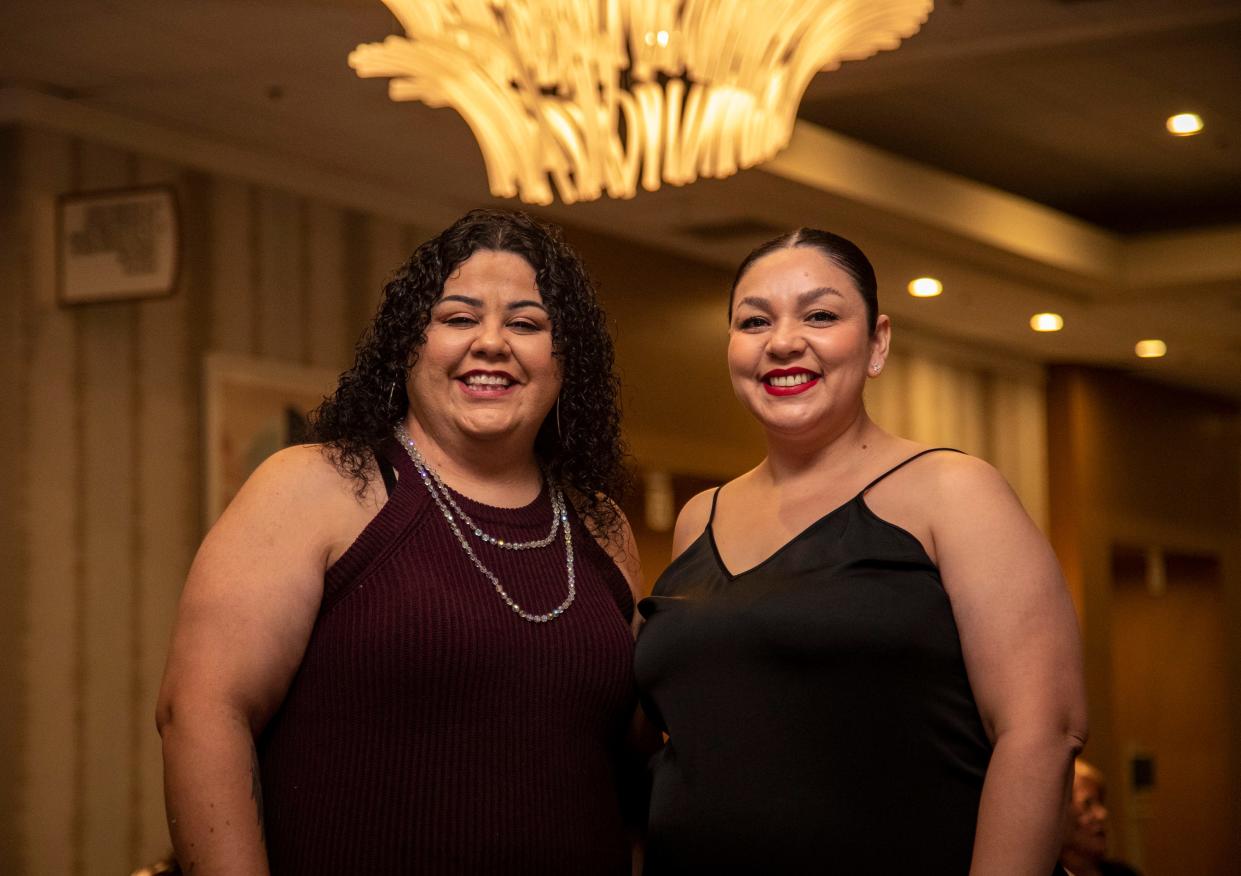
Benina Zavala, 37, recalls how difficult it was for her to move from apartment to apartment as a child when her parents lost their house and ultimately divorced. After she became a single mother, unable to afford a house for her three children, she feared they would also lack a place to call home.
Zavala said she'd tried to obtain a bank loan when she began shopping around for a house nearly five years ago, but was denied because she had no credit as she always bought things with cash.
"I guess no credit is bad credit and me being by myself, they probably saw I couldn't afford it," she said.
Once Zavala established credit, she had a fairly low score of 640, which still made it hard to get a mortgage — especially one with an affordable rate. She said she was not optimistic when signing up for the Self-Help Housing Program with Coachella Valley Housing Coalition, but soon discovered she qualified.
She was in disbelief that she would finally become a homeowner.
Overcome with emotion, Zavala said: “When they accepted me, just signing the paperwork, I couldn't believe it was true. Then the day came when they said, ‘Hey, you gotta come out and start building.’ That experience, I’ll never forget.”
The program enables affordable home ownership through collaboration: Both the families and the nonprofit organization build a house from the ground up, with the technical assistance of a professional construction supervisor.
When building her home, in Coachella, Zavala said she’d often take her daughters, 7 and 9 at the time, and son, then 17, to the site to “show them what Mom was doing.”
“With the happiness in my kids’ faces, just to see that they’d have their own room, I can say that I accomplished, you know, the American dream of getting a home. Building it was just an extra miracle, to have that experience,” she said.
The Self-Help Housing Program requires families to put in 60% of the labor that goes into building their house. Only when all the houses in a given project are complete can everybody move in, fostering a sense of community as families and supervisors spend 10 to 12 months together building.
Zavala’s story is one of approximately 5,000 of those who have received assistance from Coachella Valley Housing Coalition in its 40 years, which the organization is celebrating this month.
CVHC got its start in Coachella, when a group of community activists and business leaders obtained a grant from Aetna Foundation (a nonprofit that supports programs that promote wellness, health and access to high-quality care) to help rural workers who lacked permanent housing.
Recalling CVHC's humble beginnings, Executive Director Pedro S.G. Rodriguez said: "For an organization that started out with a very nominal grant of $10,000, to be able to grow and provide housing for many low-income families in the Coachella Valley and Imperial Valley, as well, it's an incredible feeling."
The organization has since expanded to help not only farmworkers, but also people that are seniors, homeless veterans and those with disabilities.
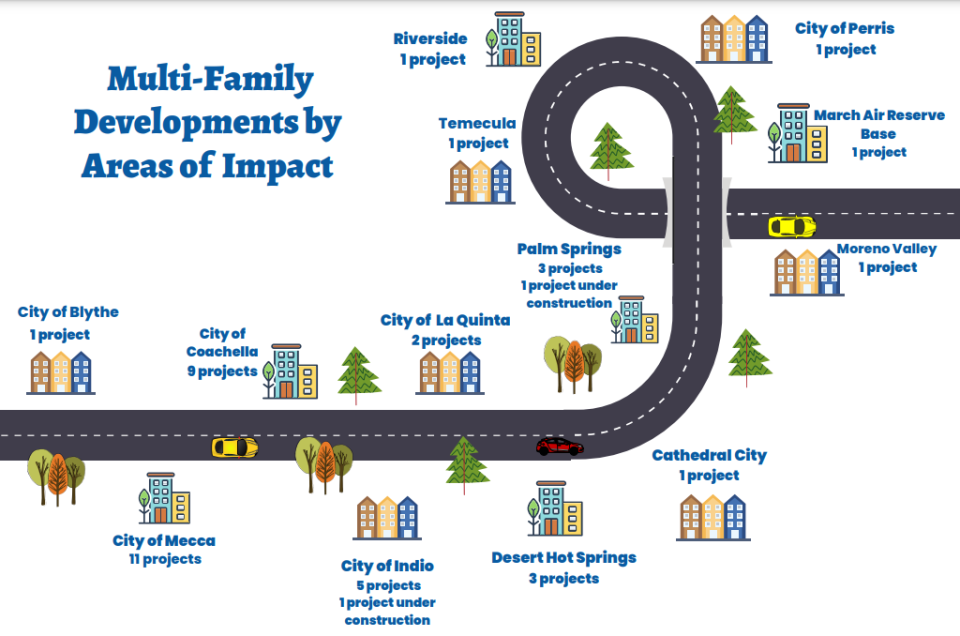
To be eligible for assistance, people must live near rural areas — defined by population size and/or proximity to agriculture fields — and make less than 50% of the county median income, according to Rodriguez.
Areas currently considered rural in the Coachella Valley include Desert Hot Springs and the unincorporated east valley communities of Northshore, Mecca and Thermal.
In Riverside County, 50% of the median family income is around $44,000 for a family of four.
"The reason this program works so successfully," Rodriguez said, "is because they only pay 30% of their gross income for housing. (That percentage) is the threshold of what families should be paying for housing costs, because if they were paying more than that, then you're taking away from the money that they need to live."
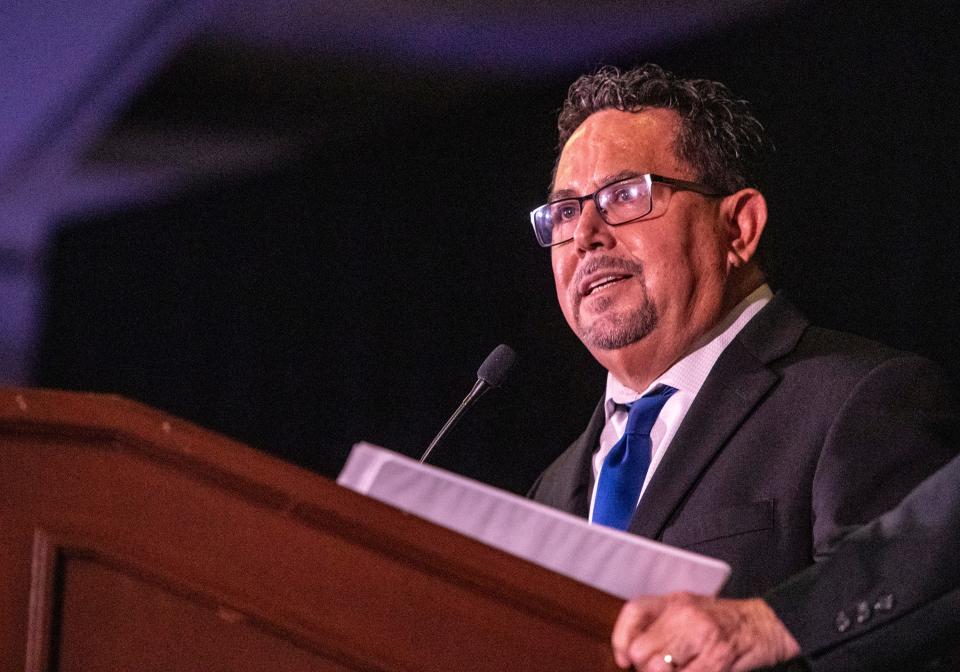
In its four decades, CVHC has helped build over 2,100 single-family homes in Riverside and Imperial counties. And its Multi-Family Housing Development Department has built close to 2,900 rental units. Several hundred more projects are currently in pre-development or under construction.
To date, the coalition has received most of its funding from U.S. Department of Agriculture, because of its roots in prioritizing farmworkers, while other sources include the state and Riverside County.
These funding partnerships have been key for the families that CVHC helps, allowing the nonprofit to offer assistance even during times of economic downturn.
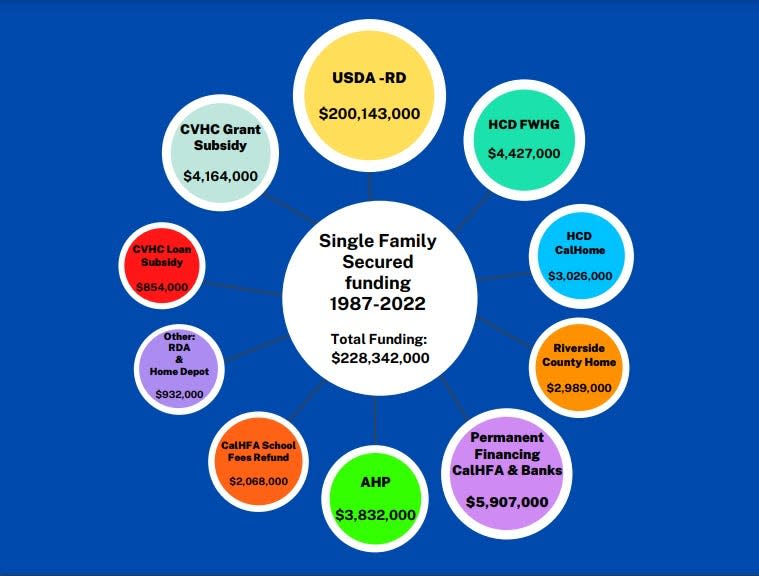
Rodriguez, who has been with the organization for 27 years and was chief financial officer before becoming director last year, called CVHC "recession-proof."
"In 2008, when the housing market collapsed and private developers were leaving unfinished lots because they couldn't develop, CVHC was able to come in and buy those lots," he said, adding that the organization purchased 205 lots to build on in Coachella.
He said the nonprofit has not been limited on resources, even during the housing crash and the more recent COVID-19 pandemic, and offers more services to residents after they move in: There are computer literacy programs, after school programs for children and other learning opportunities at many of its apartment projects.
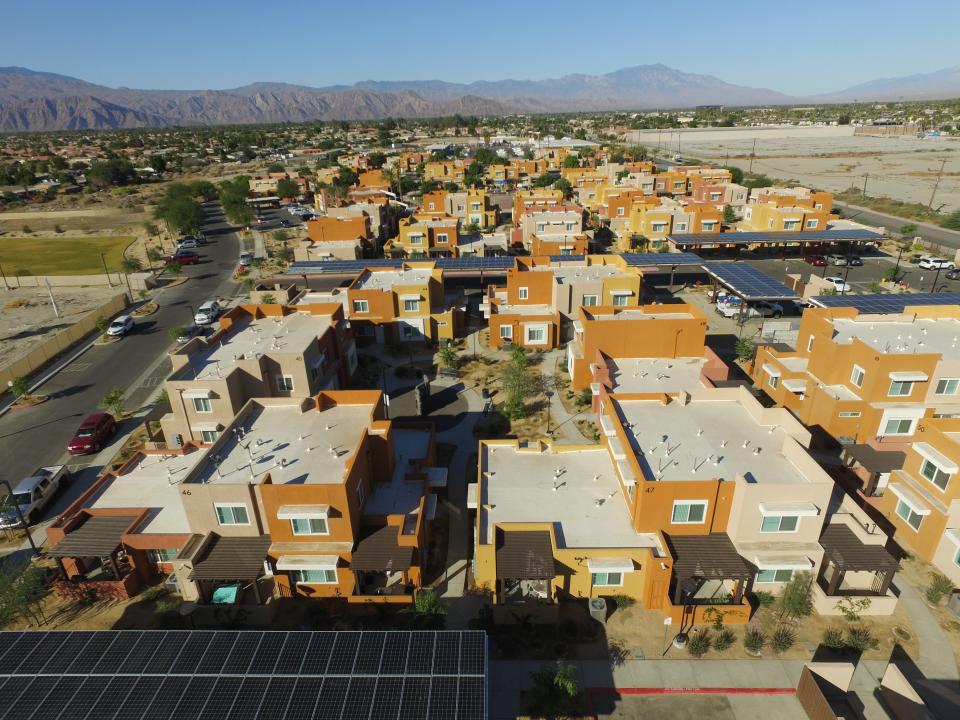
Zavala said she herself contacted CVHC when she fell ill with COVID and had to stop going to work, as well as during other times of financial hardship.
"No matter what I'm going through, I can call them and explain and they've helped me not lose my home. ...There's just so many programs that they refer you to, that help you out, either paying your mortgage or stopping your payments until you can get back on your feet," Zavala said.
On Saturday, the organization hosted a celebration of its 40th anniversary for board members, community leaders and several hundreds of the residents it has worked with throughout the years, including Zavala.
Eliana Perez covers the eastern Coachella Valley. Reach her at eliana.perez@thedesertsun.com or on Twitter @ElianaPress.
This article originally appeared on Palm Springs Desert Sun: Coachella Valley Housing Coalition helps thousands become homeowners

